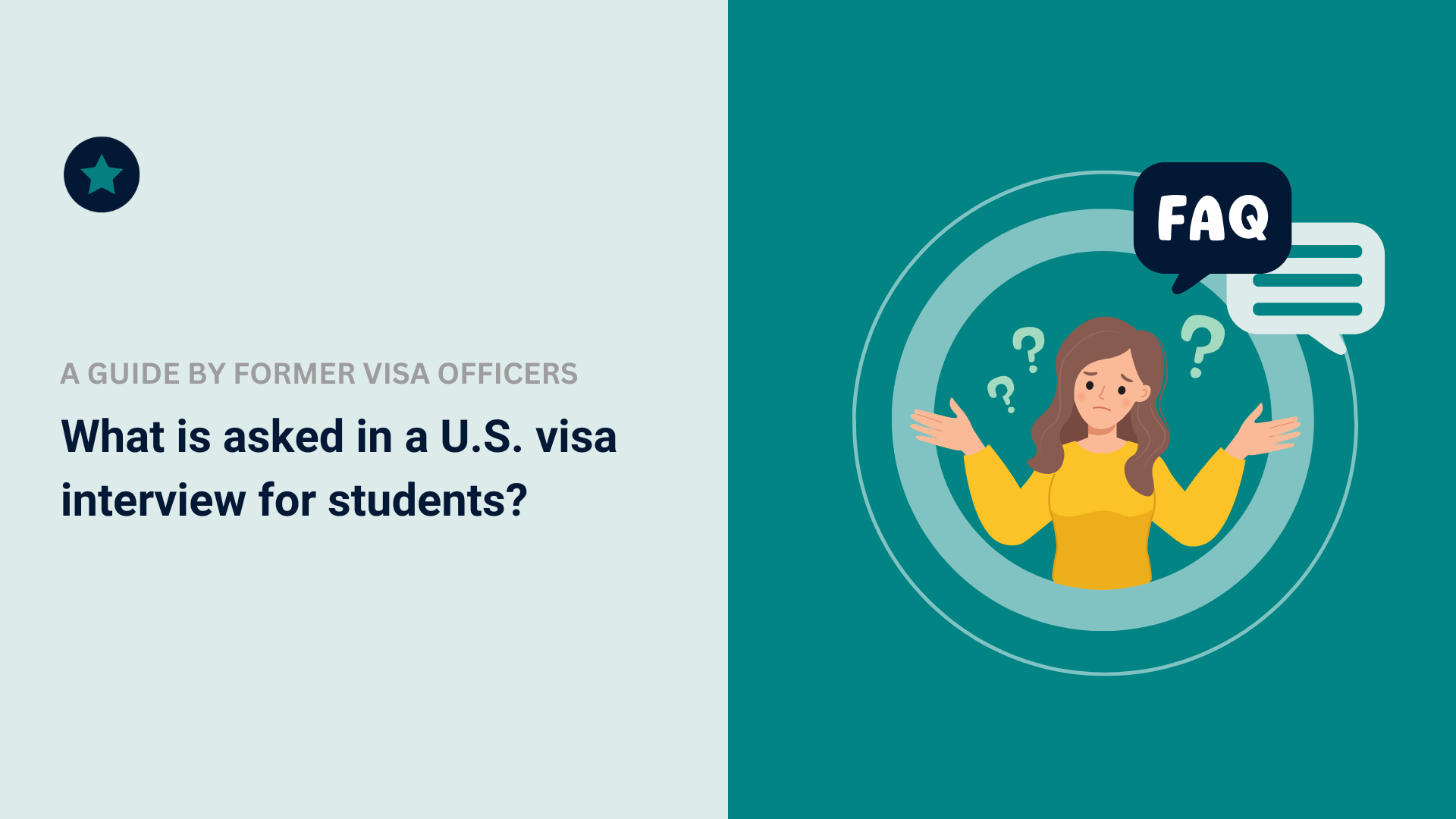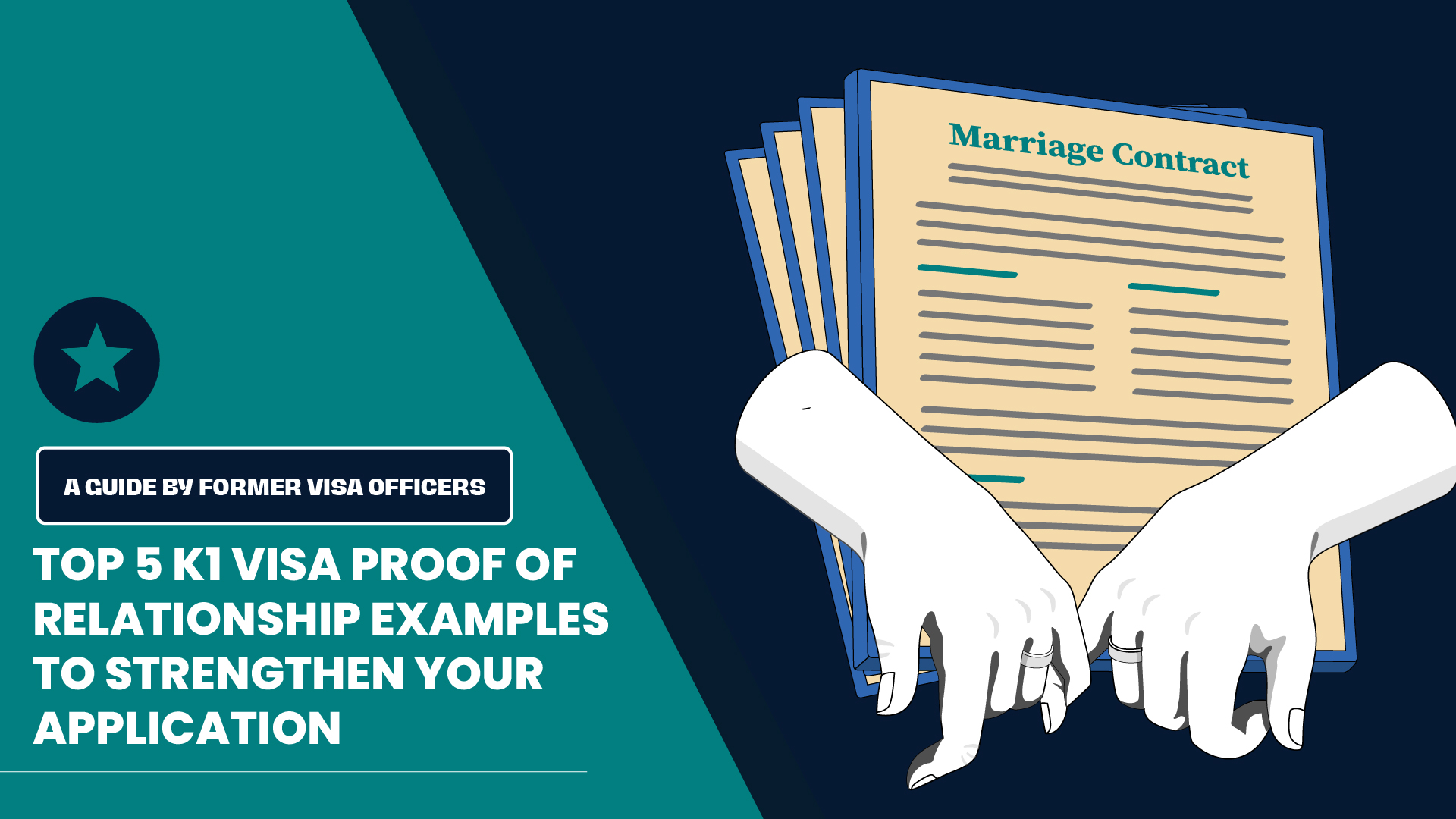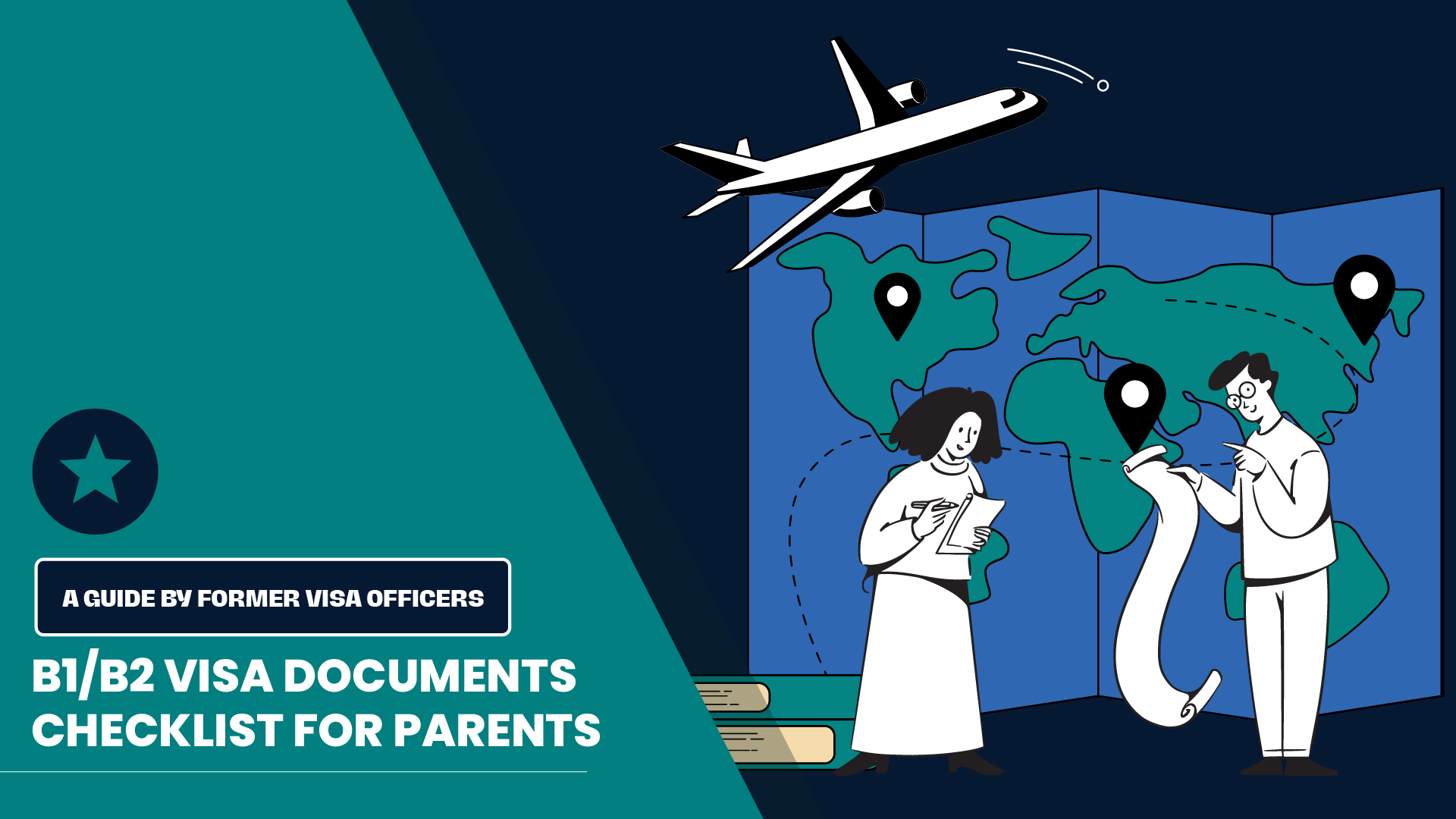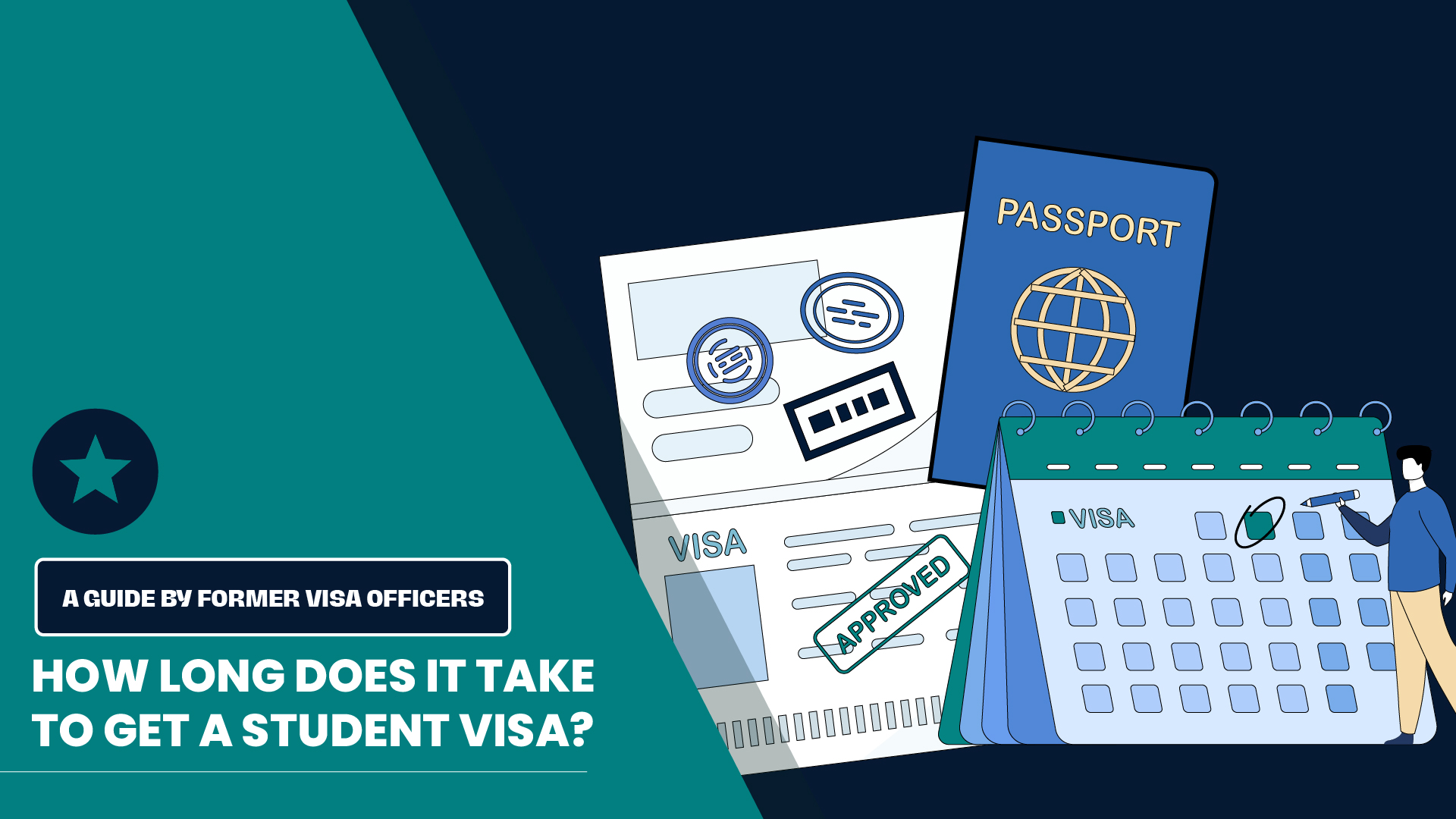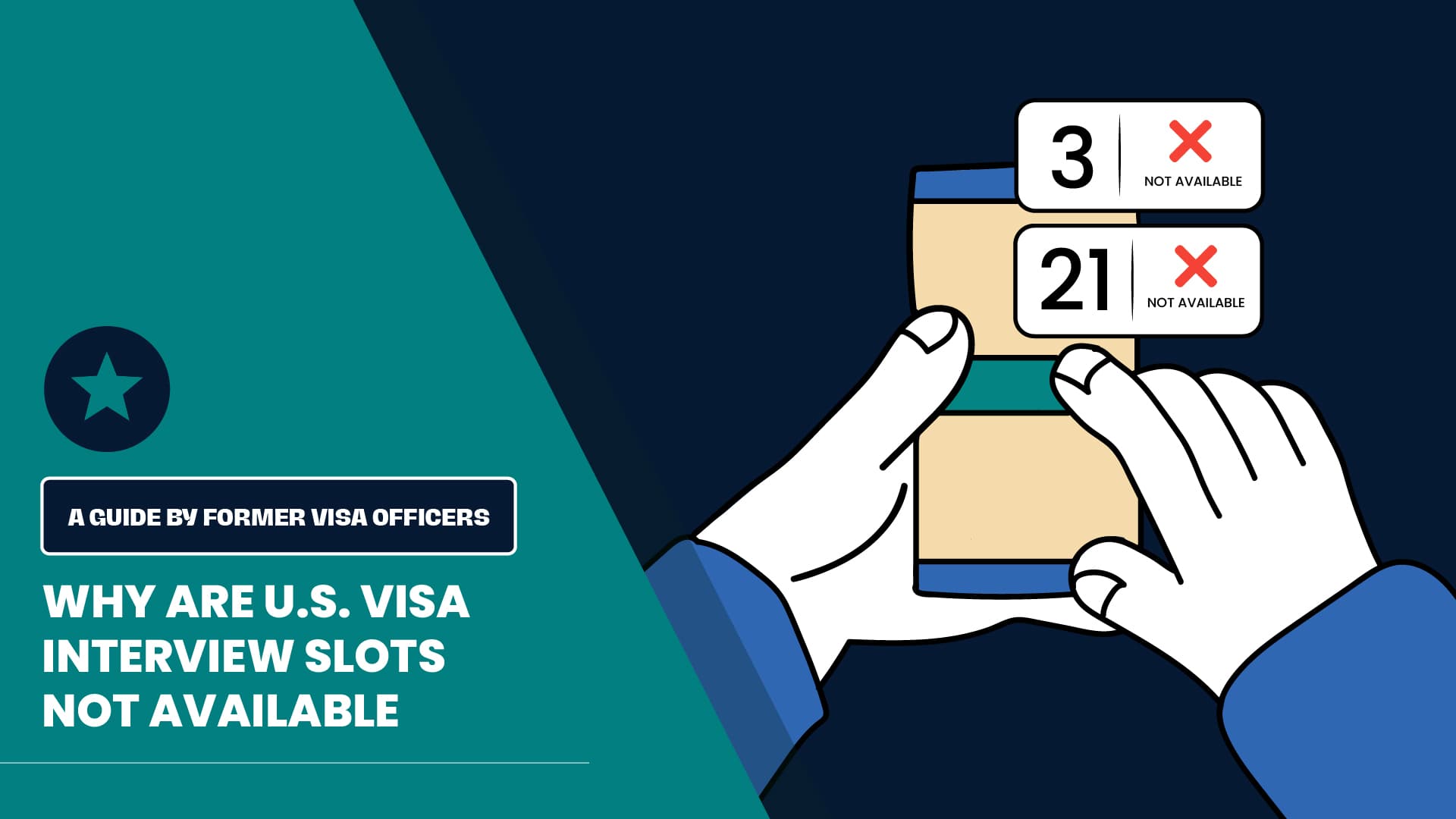One of the most daunting parts of the U.S. student visa application process is the visa interview. It decides if your request for a student visa to the United States will be approved or denied.
The goal of the student visa interview is for the consular officer to learn more about you as an applicant beyond what your paperwork says about you.
They want to determine whether you really intend to study in the U.S. or have another motive for applying. They are also interested in understanding your decision to study in the U.S. instead of your native country or another nation.
During your interview, you may be asked questions about your background, family history, educational experience, and plans for studying in the United States.
Typically, the interviewer will ask questions about one of the following topics:
- Questions about your study plans: You should be ready to discuss why you chose the school or university to which you applied. It would be best if you researched the educational institute you applied to and prepared a good explanation as to why you chose that specific institution.
- Questions about your academic credentials: During your interview, you will need to show that you have what it takes to do well in a U.S. school.
- Questions about your financial condition: You can only be granted a student visa if you establish that you can pay for your studies. So, before the interview, ensure you have a clear plan for how you are going to pay for school.
- Questions about your after-study plans: Technically, the student visa is only available to people who want to return home after completing approved activities; OPT or a work visa are still legal activities within the U.S., and hoping to attain either will not disqualify you as an applicant. But to increase your chances of obtaining a student visa, you must demonstrate that you intend to study and return home after graduation.
When preparing for your visa interview, it is essential to have all your documentation, be honest, remain calm, and be ready to answer frequently asked questions. You will feel more confident during the interview if you practice answering these questions in front of a mirror.
In this post, we share some example questions that a visa officer may ask, along with advice on how to answer them. If you need help with a question, Udeti Visa offers one-on-one consultation sessions to help you prepare for your interview. Book your consultation now!
Frequently Asked Questions for the U.S. Student Visa:
Table of Contents
ToggleWhy do you want to study in the United States?
To answer this question, you could say that the U.S. has one of the best education systems in the world, with excellent programs in both traditional subjects and professional fields. A degree from a U.S. college is also recognized worldwide and will open up many job opportunities for you.
Another point you can highlight is that studying in the United States will give you an unrivaled opportunity to broaden your perspective.
When you live and study in the U.S., you can easily interact with people from different countries and cultures. From other international students in your class to people you meet in college, there is much you can learn and experience from the diverse American population!
All of these factors, along with access to cutting-edge research and study abroad opportunities, served as a compelling reason for you to choose the United States to study.
Why are you not able to complete your studies in your own country?
Use this question to compare the level of education in your home country to that in the United States. By comparing the higher education systems of your home country and the U.S., you can show that you know about different education systems around the world and, more importantly, that you are ambitious.
Avoid offering replies such as “The United States is the best country” or “The United States has the best economy,” since these cliches will lead the consular officer to believe that you adore the U.S. so much that you want to live there even after your studies are over. Instead, emphasize your course or the institution you will be attending.
You can also mention that your intended field of study is unavailable in your native country. You could also discuss how your country and the U.S. educational system differ in structure, technology, resources, and teachers.
What are your study plans?
This question is asked to understand your decision to pursue further education instead of entering the workforce. The visa officer is also trying to understand your decision to study in the United States as opposed to your native country or another nation and whether you are a genuine student who intends to return once your studies are completed.
Inform the interviewer about the field of study in which you want to major. For instance, if you’re going to do a master’s in engineering, you might discuss how you plan to work on upcoming technologies for developing efficient solutions to a global problem like climate change.
Who will sponsor your education?
With this question, the visa officer wants to know if your education is being sponsored by scholarships or sponsorships. If you have received a scholarship, that will boost your chances of getting the visa approved. You should indicate who awarded it and for how much, along with other pertinent information.
If there is sponsorship, all necessary information must be provided, including name, relationship, etc. It is preferable if your parents or other close relatives, as opposed to distant relatives like uncles or cousins, sponsor you.
What is the profession of your relatives?
The visa officer is trying to gauge the financial competence of your family and sponsors. Therefore, you should be able to precisely and briefly describe their occupation and profession.
Use statements highlighting their dependability, like “My father has been a practicing surgeon for 20 years” or “My mother works as a senior manager at Amazon.”
Have you ever visited the United States?
In response to this question, if you have ever visited the U.S., state the purpose of your past visit, such as for business, to see family and friends, on vacation, etc. On the other hand, if you have never visited the United States, state that you haven’t had the chance to do so.
What are your academic scores?
The visa officer asks this question to see if you are a competent student with a reasonable probability of graduating from the program you have selected. You can answer this question by sharing the results of each test you have taken.
The test includes standardized exams like the GRE, GMAT, etc. Also, share your English exam results, such as those from the International English Language Testing System (IELTS) and the Test of English as a Foreign Language (TOEFL). Doing this not only demonstrates your qualifications but also shows how dedicated you are to honing your skills and improving yourself.
Why did you pick this educational institution?
With this question, the visa officer hopes to gain insight into your academic abilities. You could answer this by saying that, after conducting extensive research on the educational institutions that offer your major, you chose it because of its outstanding reputation and many benefits.
It would be best to emphasize that the institute will give you access to essential study resources. You can also research why the institution is unique and select an authentic, personal answer to this question.
Avoid answers like this is the best school in the USA. Instead, discuss why you like the school.
How many universities did you submit applications to?
Here the officer wants to assess if you are a credible applicant; serious students generally apply to many schools. The visa officer will evaluate your response to decide if you have lied.
Therefore, whether or not you have received acceptance letters from all the institutes you applied to, give the visa officer honest answers.
Higher visa approval rates accompany higher acceptance rates, but the visa will be immediately denied if a falsehood is detected.
Where did you complete your schooling?
The Visa Officer will ask you to provide the name of the university or college you attended before applying for admission to the United States. Also, if you studied at a well-known institute, you could boost your academic credentials by mentioning the school’s or university’s high ranking and popularity.
Your answer should be short and precise, showing that you are proud of the past but excited to move on to new things.
(This blog post was written by Yvette Bansal, former consular officer & Kausar Shaikh, Content Strategist.)
DISCLAIMER:
This blog does not endorse or advocate for any illegal activities. All content presented here is intended for educational purposes only. The viewpoints expressed do not constitute legal advice and are solely based on the writer’s opinions and experiences. Please use the information provided responsibly. Any advice given is of a general nature and should be applied to your specific circumstances with caution and consideration.
Copyright © 2024 UDETI LLC. All rights reserved.

